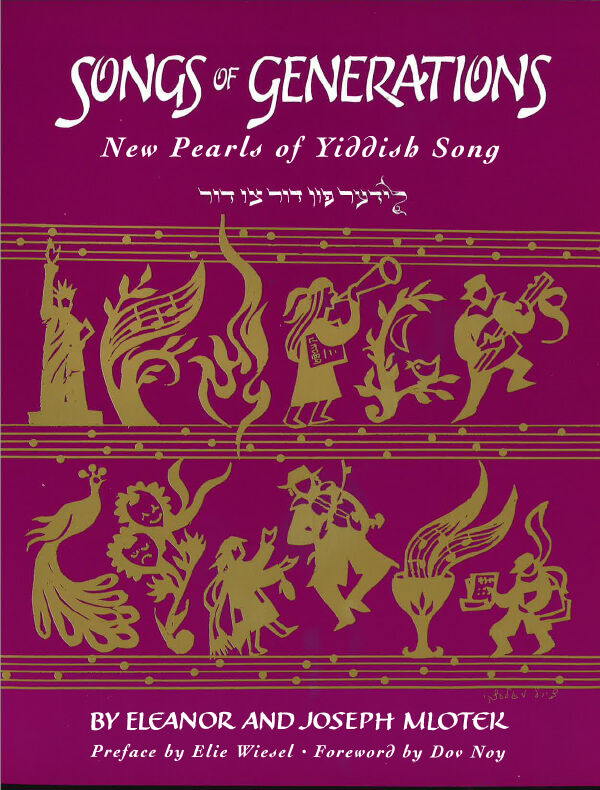Popular folksong sung by compiler in pre-World War II, Poland. Published in the second choral collection of I. Gershteyn, Vilna, 1939, in the arrangement of Elye Teitelbaum. Melodic and textual variants were published by Y.L. Cahan and M. Kipnis in 1912 and 1918 respectively.

Why are you hanging around near my windows?
Do you think I will come out to you?
Am I, then, the prettiest of all the girls?
Don’t you have any that are prettier than I?
Don’t pay me any false compliments,
Don’t tell me that you really love me;
May you all burn like lanterns–
My beloved just the same as you!
Vos dreystu zikh arum bay mayne fentsterlekh?
Meynst ikh vel aroysgeyn tsu dir.
Tsi bin ikh den di shenste fun di meydelekh?
Tsi hostu nit keyn shenere fun mir?
Makh mir nisht keyn falshe komplimentelekh,
Zog mir nisht az du host mikh take lib;
Az brenen zolt ir ale vi di lempelekh –
Mayn gelibter punkt azoy vi ir.
װאָס דרײסטו זיך אַרום בײַי מײַנע פֿענצטערלעך?!
מײנסט, איך װעל אַרױסגײן צו דיר,
צי בין איך דען די שענסטע פֿון די מײדעלעך!
צי האָסטו ניט קײן שענערע פֿון מיר?
מאַך מיר נישט קײן פֿאַלשע קאָמפֿלימענטעלעך,
זאָג מיר נישט, אַז דו האָסט מיך טאַקע ליב;
אַז ברענען זאָלט איר אָלע װי די לעמפּעלעך —
מײַן געליבטער פּונקט אַזױ װי איר.
Song Title: Vos Dreystu Zikh Arum Bay Mayne Fentsterlekh?

The Songs of Generations: New Pearls of Yiddish Song anthology comprises songs that were either never printed before or appeared in rare and inaccessible publications — sometimes in different versions and without proper sources. Most of the songs in this book were submitted by readers of Chana and Yosl’s column “Perl fun der yidisher poezye” (Pearls of Yiddish Poetry) in the Yiddish newspaper Der Forverts (The Forward), initiated in October, 1970. Over 25 years, thousands of songs were collected in correspondence and on cassettes from readers throughout the world, and they represent a veritable national Yiddish song archive. Chana Mlotek, in her introduction, writes, “In the course of years the inquiries, contributions and enthusiasm of these readers have kept our own interest unflagging and have reinforced our dedication to this effort. And in recent years our participants have also been augmented by new readers from the former Soviet Russia, who receive our newspaper there or from newly-arrived immigrants in this country and Israel.”